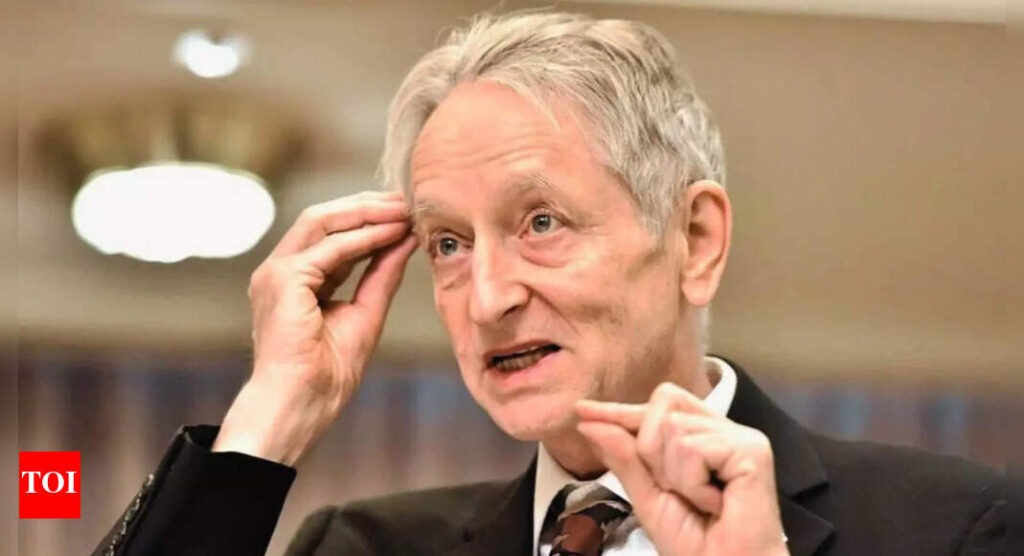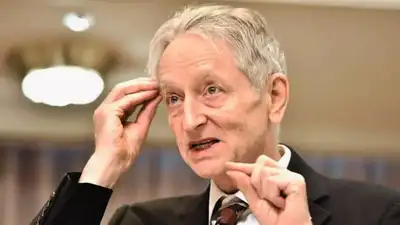Who is Geoffrey Hinton? The ‘godfather of AI’ who went from studying psychology at Cambridge to becoming a Nobel-winning scientist

Geoffrey Hinton’s journey to becoming one of the most celebrated figures in artificial intelligence was neither linear nor conventional. From his early academic restlessness at Cambridge to his groundbreaking research in Canada and eventual recognition with a Nobel Prize, Hinton’s career reflects both the evolution of AI and the persistence required to challenge scientific orthodoxy.
Early life and education in England
Born on December 6, 1947, in Wimbledon, England, Hinton was educated at Clifton College in Bristol. In 1967, he entered King’s College, Cambridge, where he explored a wide range of subjects before committing to experimental psychology. His undergraduate years were marked by intellectual curiosity and frequent changes in academic direction, shifting between natural sciences, history of art, and philosophy before settling on the study of the mind.He graduated in 1970 with a bachelor’s degree in experimental psychology. Rather than immediately pursue further studies, Hinton took an unexpected detour — apprenticing as a carpenter for a year. This break from academia proved temporary, as his interest in the workings of the mind and the potential of machines to mimic human cognition drew him back to university life.
A PhD in artificial intelligence at Edinburgh
In 1972, Hinton began doctoral research at the University of Edinburgh, focusing on artificial intelligence. His work was supervised by Christopher Longuet-Higgins, a leading figure in cognitive science. At the time, the AI field was dominated by symbolic approaches, which relied on explicit rules and logic, while neural networks — models inspired by the brain — were still considered fringe science.Hinton completed his PhD in 1978, cementing his commitment to neural networks despite the lack of widespread support for the approach.
Moving abroad in search of research opportunities
Funding limitations in the UK forced Hinton to look overseas. He moved to the United States, taking research positions at the University of California, San Diego, and later Carnegie Mellon University. In these roles, he advanced early work on neural networks, contributing to the revival of the approach that would decades later dominate AI research.
Establishing an AI hub in Canada
In 1987, Hinton relocated to Canada to join the University of Toronto as a professor. That same year, he became a fellow at the Canadian Institute for Advanced Research (CIFAR), where he helped establish the Neural Computation and Adaptive Perception program. This initiative brought together leading minds in AI, including Yoshua Bengio and Yann LeCun, fostering collaborations that would transform the field.His Toronto lab became a training ground for a generation of AI researchers who went on to lead influential projects worldwide.
Breakthroughs in deep learning
Hinton’s contributions over the decades have been pivotal. In the 1980s, he co-invented the Boltzmann machine, an early neural network model. Later, his work with David Rumelhart and Ronald J. Williams helped popularise the backpropagation algorithm for training deep networks.A landmark moment came in 2012, when Hinton and his graduate students Alex Krizhevsky and Ilya Sutskever developed AlexNet, a deep convolutional neural network that dramatically outperformed competitors in the ImageNet challenge. This breakthrough demonstrated the power of deep learning for image recognition and triggered a global surge in AI research and investment.
From academia to Google and back
In 2012, Hinton co-founded DNN research Inc., which was acquired by Google in 2013. For the next decade, he split his time between Google Brain and the University of Toronto, furthering research in machine learning and mentoring top AI talent.
Global recognition and shift to advocacy
Hinton’s achievements have been widely recognised. He shared the 2018 ACM A.M. Turing Award with Bengio and LeCun for their work on deep learning, received the 2024 Nobel Prize in Physics with John Hopfield, and was honoured with the 2025 Queen Elizabeth Prize for Engineering.In 2023, Hinton resigned from Google to focus on raising awareness about AI’s potential risks. His advocacy highlights the need for international cooperation on AI safety, addressing concerns such as misuse by malicious actors, job displacement, and the challenge of controlling systems more intelligent than humans.
A career that shaped the AI era
Geoffrey Hinton’s career is a testament to the power of persistence and intellectual curiosity. From a Cambridge psychology student to a Nobel-winning scientist, he has not only advanced the frontiers of artificial intelligence but also helped shape the global conversation on its future. His work continues to influence both the technical direction of AI research and the ethical framework within which it must evolve.






